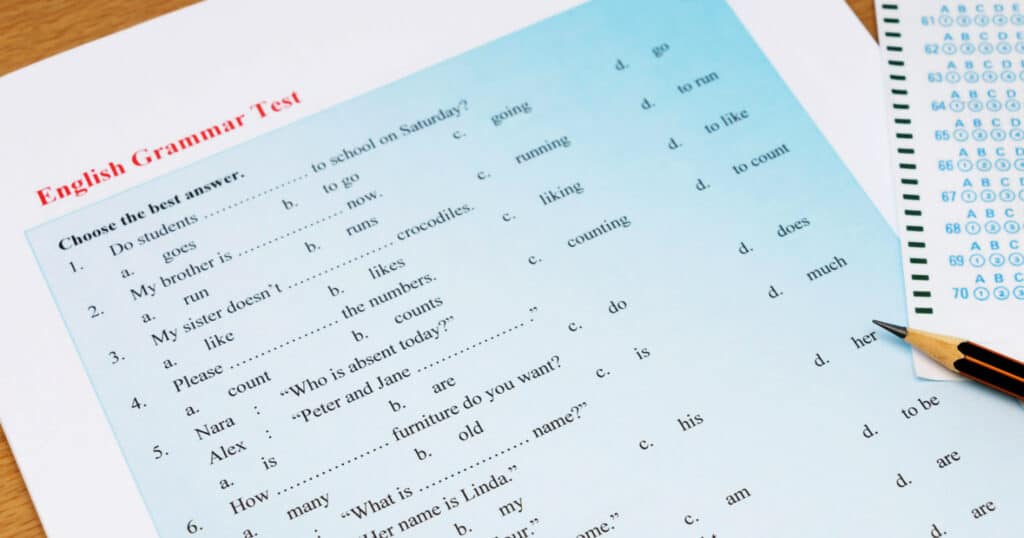In a multicultural and globalized work environment, effective communication is key to success. Assessing language skills during recruitment is essential for ensuring that employees can effectively engage with colleagues, clients, and stakeholders.
Table of Contents
Here’s a comprehensive guide on why and how to assess language skills, along with methods to conduct accurate and reliable language proficiency tests.

Why Assess Language Skills?
1. Enhancing Communication
Effective communication is fundamental to any role that requires interaction with others. Assessing language skills helps ensure that candidates can convey ideas clearly and understand instructions, reducing the risk of misunderstandings and improving team collaboration.
2. Meeting Job Requirements
Certain roles demand specific language skills, whether for customer support, content creation, or technical roles. Assessing language proficiency ensures candidates meet the required language standards for the job, leading to better job performance and fewer hiring mismatches.

3. Supporting Global Operations
For companies operating internationally, language proficiency is crucial for engaging with a global audience. Assessing language skills helps ensure that employees can effectively communicate with international clients, partners, and colleagues, enhancing global business operations.
4. Promoting Fairness and Inclusion
Language assessments provide an objective measure of a candidate’s capabilities, allowing employers to evaluate skills based on merit rather than background. This promotes fairness in the recruitment process and supports diversity and inclusion.
Methods for Assessing Language Skills
1. Standardized Language Tests
Standardized tests provide a reliable measure of language proficiency. Tests such as TOEFL (Test of English as a Foreign Language), IELTS (International English Language Testing System), and DELE (Diplomas de Español como Lengua Extranjera) offer internationally recognized benchmarks for assessing language skills.
2. Customized Language Assessments
Tailor-made assessments can be designed to evaluate specific language skills relevant to the job. For instance, tests can focus on technical vocabulary, industry-specific communication, or the ability to perform job-related tasks in the target language.
3. Practical Language Simulations
Interactive simulations assess candidates’ language skills in real-world scenarios. These can include tasks such as writing emails, participating in conversations, or handling customer inquiries. Practical simulations provide insights into how candidates use language in actual work situations.
4. Language Proficiency Interviews
Conducting language proficiency interviews allows employers to assess candidates’ speaking and listening skills in real time. Interviews can be structured to evaluate fluency, comprehension, and the ability to communicate effectively in various contexts.
5. Written Assessments
Written tests can evaluate reading and writing skills, including grammar, vocabulary, and composition. These assessments can be customized to reflect the language demands of the job and gauge candidates’ ability to produce clear and accurate written communication.
Implementing Language Assessments
1. Define Language Requirements
Clearly outline the language skills required for each role. Determine the level of proficiency needed and choose appropriate assessment methods to align with these requirements.
2. Select Reliable Tools
Choose reputable language assessment tools and tests that provide accurate and valid measures of proficiency. Ensure that the tools are well-suited to the specific language needs of the job.
3. Integrate into the Recruitment Process
Incorporate language assessments into your recruitment process to evaluate candidates effectively. Use assessment results to inform hiring decisions and ensure that candidates meet the required language standards.
4. Provide Feedback and Support
Offer feedback to candidates on their language assessments and provide support or resources for those needing to improve their language skills. This can help candidates enhance their proficiency and align with job requirements.
Understanding CEFR Tests for Language Proficiency
The Common European Framework of Reference for Languages (CEFR) is an internationally recognized system for measuring and describing language proficiency. It provides a standardized framework for assessing language skills across different languages and countries.
CEFR tests are widely used to evaluate candidates’ language abilities and ensure they meet the required proficiency levels for various roles.
What is CEFR?
The CEFR framework categorizes language proficiency into six levels, ranging from basic to advanced:
- A1 (Beginner): Basic ability to communicate and understand simple phrases. Suitable for everyday needs.
- A2 (Elementary): Can handle simple tasks and understand routine information in familiar contexts.
- B1 (Intermediate): Capable of dealing with most situations encountered while traveling in a language-speaking country. Can produce simple connected text on familiar topics.
- B2 (Upper Intermediate): Can understand the main ideas of complex text and interact with a degree of fluency and spontaneity.
- C1 (Advanced): Proficient in using the language effectively for social, academic, and professional purposes. Can produce clear, well-structured text on complex subjects.
- C2 (Proficient): Mastery of the language, with near-native ability to understand virtually everything read or heard and to express ideas spontaneously and precisely.
Why Use CEFR Tests?
1. Standardized Assessment
CEFR tests offer a standardized method for evaluating language proficiency, providing consistent and comparable results across different languages and testing institutions. Check outthe CEFR English test
2. Comprehensive Evaluation
The CEFR framework assesses a range of language skills, including speaking, listening, reading, and writing. This comprehensive evaluation ensures that candidates are proficient in all aspects of language use.
3. International Recognition
CEFR is widely recognized and used globally, making it a reliable reference for employers, educational institutions, and language learners. It facilitates the comparison of language skills across different regions and languages.
4. Tailored for Diverse Needs
CEFR tests can be tailored to assess language proficiency in specific contexts, such as academic, professional, or everyday situations. This adaptability ensures that assessments align with the requirements of various roles and environments.

Implementing CEFR Tests
1. Determine Proficiency Needs
Identify the CEFR level required for each role or purpose. Choose tests that align with these requirements to ensure an accurate assessment of candidates’ language skills.
2. Select Reputable Tests
Use CEFR-aligned tests from reputable organizations that provide valid and reliable measures of language proficiency.
3. Integrate into Recruitment or Education
Incorporate CEFR tests into your recruitment process or educational programs to assess and certify language proficiency effectively.
4. Monitor and Evaluate
Regularly review and evaluate the effectiveness of CEFR tests in meeting your language assessment needs and make adjustments as necessary.
Final Words on Testing Language Proficiency
Assessing language skills is a critical component of recruitment, especially in a diverse and globalized work environment. By implementing effective language assessments, organizations can ensure that candidates have the necessary communication skills to succeed in their roles.
Whether through standardized tests, customized assessments, or practical simulations, evaluating language proficiency helps build a capable and effective workforce, enhancing overall organizational success.



